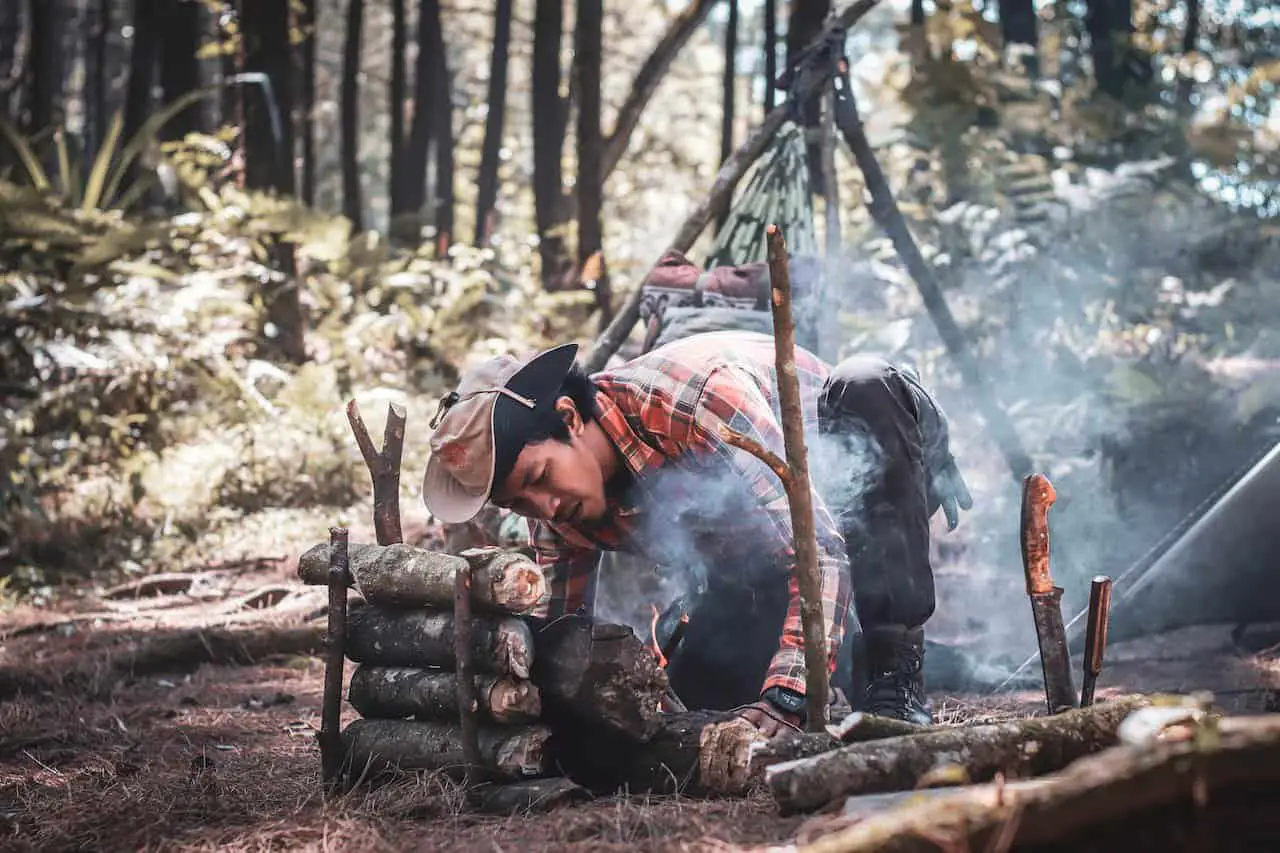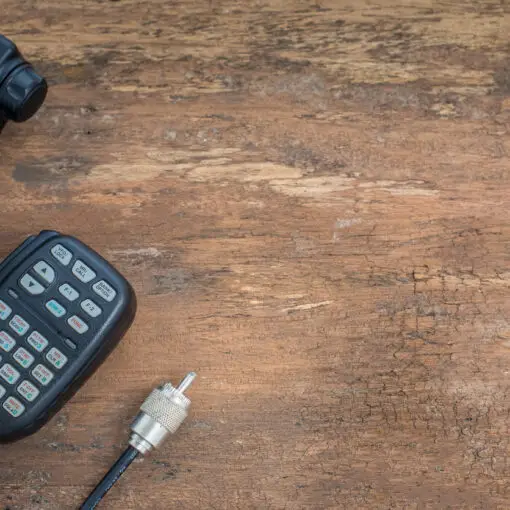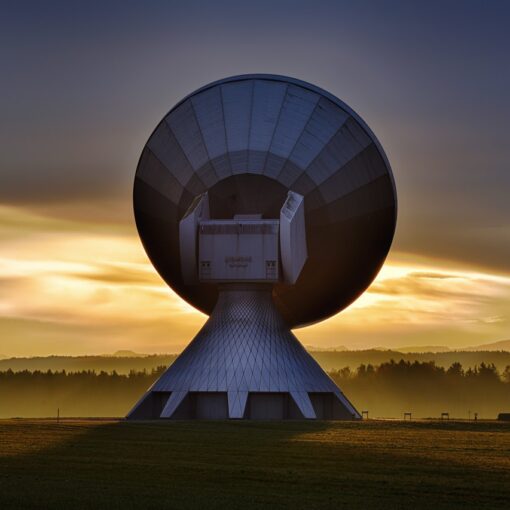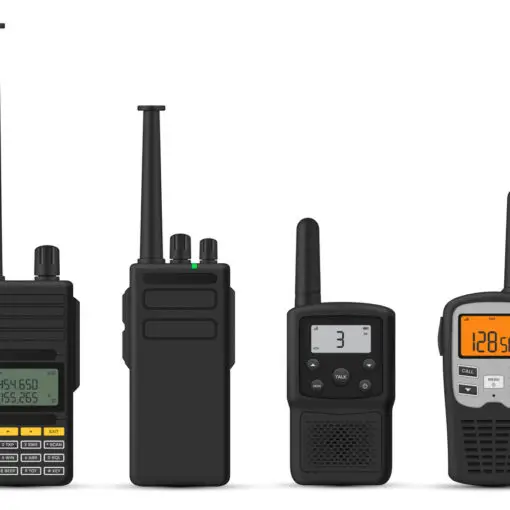While ham radios are fantastic for having a bit of fun and chatting with people, they are also an essential tool in survival situations. When major communication networks are down, you are going to want to take advantage of other networks, and this is where ham radio comes into play.
On this page, we want to walk you through how preppers can benefit from using ham radio. We hope that you never have to face a situation where you need to whip out a ham radio for anything other than casual conversation. However, if you do, you will be glad that you read this guide.
Why Is Ham Radio Great For Preppers?
Before we dive into how ham radio operators can use their radio in a disaster situation, we want to cover the reasons why ham radio may be a fantastic option for preppers.
Emergency Service Broadcasts
This is probably one of the major advantages of using ham radio in a disaster situation.
There will be emergency services broadcasting on frequencies that can be picked up by ham radios. You can tap into these communications and get vital information. You may be told where you need to go, keep abreast of developing situations in your local area, etc.
You do not need a license to listen in on emergency service broadcasts.
The Network Is Reliable
In major disaster situations, major communications networks can be knocked offline. Cellphone towers are gone. Internet connections shut off. You may not even have access to television channels.
Due to the way in which ham radio works, you never have to worry about the network going down. There is enough equipment out there, much of it detached from major electrical supplies, etc. that you should be able to communicate with ease in the midst of trouble.
Low Power Consumption
Ham radio doesn’t take a whole lot of power. Your ham radio may be running on batteries (which is great!), but there may be other pieces of the network out there that rely on electricity generation, etc. You may even need to look into that to keep your batteries charged during a major outage.
Because ham radio requires little in the way of power, it requires little in the way of electricity access. You could last for months on a stack of batteries, although hopefully it doesn’t come to that.
Easy To Use
Modern ham radios are dead-simple to use. They come with a wealth of features that will allow you to easily tap into emergency broadcasts, or listen out to other people seeking information. Important in a disaster situation. You don’t want to spend hours and hours twiddling about with frequencies in the hope that you find somebody to assist you.
Easy Communication
This ties in with the previous part. Ham radios make it easy to communicate. We can assure you that no matter where you live, there will be people out there listening to you. The emergency services will also be using the ham radio frequencies heavily during a disaster event.
Portable
While there are some stationary ham radios, you probably won’t need one of those for a disaster. You want something portable. Many ham radios are shaped much like a children’s walkie-talkie (but much more powerful). This way, you can always stay in touch with people. In a disaster situation, you may have to move about a lot. With ham radio, you can assure that no matter where you go, you will always be able to reach somebody.
Affordable
While there are some ham radio set-ups that can easily stretch to thousands of dollars, you don’t need that if you are a prepper. A good set-up, including a good number of batteries, could cost mere hundreds. Not too bad when you know that ham radio is something that could potentially save your life.
Emergency & Disaster Communication Course
Have you ever wondered how you will be able to communicate with family and friends during an emergency or disaster? In this 50-minute course, Communications Expert and Minnesota-based Emergency Coordinator, Kevin Haney, teaches what options are available as well as a crash-course for how to use them. Learn the differences between Family Radio Service (FRS), General Mobile Radio Service (GMRS), and Amateur Radio (HAM) devices as well as the basics of how to use each one in an emergency.
You Need a License To Broadcast on Ham Radio
You do not need a license to listen on ham radio, but you will need to get a license from the FCC to broadcast.
Now, we know that there are some people thinking that they probably won’t receive a fine for broadcasting on ham radio frequencies during a disaster and, to be honest, you probably won’t. There are bigger concerns. However, you do need to know how to use your ham radio before that. You need to practice. For that, you need a license.
Thankfully, getting a license isn’t too difficult. It is just a quick few questions from the FCC and a payment. You are then able to use ham radio without issues. Although, do bear in mind that your license may have limits on how powerful your broadcasts can be.
What You Need To Look For In a Ham Radio For Preppers
Alright, now that is out of the way, we can give you a few bits of information on how you can choose a ham radio. There are a lot of options out there.
We are going to assume that you are going to opt for something portable, so we won’t talk about that. However, even then, you still would have dozens and dozens of options to choose from.
Changeable Batteries
For us, this is a must. If you are using ham radio as a prepper, then you need to plan for lengthy periods of no access to power, or perhaps travel. This means that you need to have a ham radio where you can change out the batteries. You should also be able to source spare batteries from the manufacturer. Make sure that you stock up on them!
Multiple Frequencies
At the minimum, any ham radio that you buy should cover both UHF and VHF frequencies. This should ensure that you have access to most broadcasts. You can also opt for a ham radio with HF frequencies. However, we find this isn’t necessary as a prepper. While those radios do tend to be better, they are also more power-hungry. A lot of people will stick to UHF and VHF for frequencies.
Battery Life
This should pretty much be a given. The longer the batteries last, the better. You don’t want to be getting through a battery in a matter of hours, after all.
Ease of Use
While there are cheap ham radios on the market, try to avoid them. Don’t even pick up an older ham radio. They aren’t equipped with the same ease-of-use features that their more modern counterparts offer.
You want a radio that will scan frequencies for you. You want a radio that won’t take ages to navigate through menus so you can pump out a broadcast. In our opinion, the ability to store frequencies is a must. This way, you can stay in touch with people.
Power
The more power a ham radio offers, the stronger the broadcast. Do bear in mind that your ham radio license may only allow you to broadcast at certain powers.
Handheld units tend to have less power, but the fact that they are portable means that you have more of an ability to get in range of another ham radio user.
Stationary units are power-hungry beasts (which may not always be ideal when you are prepping), but you will have an easier time hooking them up to huge antennas where you can get a decent amount of range on them.
Power Sources
We love radios that can be powered in multiple ways. In a disaster situation, you will likely be using batteries the most. However, it is nice to have a ham radio that can connect to your mains supply too. This way, if you do have limited power access, you can use your ham radio without draining the batteries.
Keeping Your Ham Radio Ready For a Disaster Situation
Other than keeping your batteries fully charged, there is not much that you can do. Remember, batteries in long-term storage may lose their charge over time, so you will need to check on them every so often. You may need to give them a top-off charge (check the battery tech, as you may need to fully drain them first).
We also suggest that you practice with your ham radio. Learn how to receive broadcasts. Learn how to listen to the emergency services. Learn how to broadcast yourself. You don’t want to be thumbing through a product manual in a disaster, after all.
How To Use Your Ham Radio in a Disaster Situation
In a disaster situation, your first job will be to pull out that ham radio and tune into the emergency services. Check every so often. Your ham radio will likely give details on how to easily access the emergency service network. There will be regular broadcasts that will tell you what to do. Do not talk to the emergency services unless you have a genuine issue.
You should also scan the various frequencies too. Don’t be afraid to walk about, if possible. This will allow you to pick up on anybody that may need assistance or has general advice for you.
If you have an issue, then broadcast it. You can talk to the emergency services. They are equipped to respond in a disaster situation.
Remember, do not hog broadcast channels unless you have a genuine need to talk to somebody. Most of your use of a ham radio in a disaster situation will be to just listen to what is going on.
Conclusion
A ham radio is one of the most important pieces of kit for anybody prepper. Pick one up, as well as a few batteries, and it could potentially save your life in a disaster situation. It will keep you in contact with the emergency services, and even allow you to tap into emergency broadcasts.
Emergency & Disaster Communication Course
Have you ever wondered how you will be able to communicate with family and friends during an emergency or disaster? In this 50-minute course, Communications Expert and Minnesota-based Emergency Coordinator, Kevin Haney, teaches what options are available as well as a crash-course for how to use them. Learn the differences between Family Radio Service (FRS), General Mobile Radio Service (GMRS), and Amateur Radio (HAM) devices as well as the basics of how to use each one in an emergency.
References
https://theprepared.com/survival-skills/guides/beginners-guide-amateur-ham-radio-preppers/ https://hamradioprep.com/how-to-get-your-ham-radio-license-made-easy






